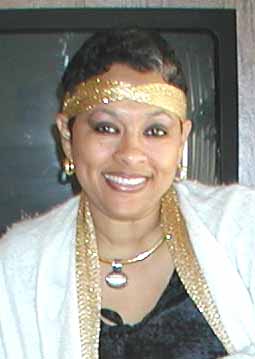 The Power of Hope.
The Power of Hope.
Joan Marques - Ed.D., MBA.
"Before you give up hope, turn back and read the attacks that were made on Lincoln." (Bruce Barton)
I would like to take the above quote one step further: Before you ridicule hope, consider Lincoln's entire life and career! One of America's most impressive, unforgettable presidents had a long list of failures and belittlements before he finally became the country's first man in a very crucial and dramatic time for the country’s history: He lost jobs, failed in business ventures, dealt with deaths of several loved ones at young ages, and was defeated at least six times while climbing the political ladder toward the presidency. Now, that was a man who had all reasons to hang his head and give up hope. Yet, he did not!
But Lincoln is not the only one we can think of when we contemplate on the subject of hope.
And yet, all these people have a few things in common: their names remain in history as great ones; they established radical change on a large scale; they believed in their calling; and they had hope. No matter how many times they were ridiculed or browbeaten, they stood up: time and again.
Hope determines our attitude: if we lose our hope we tend to give up or give in, but as long as we maintain our hope, we keep going for our goals; we keep getting up, every time we fall. Seen in that light, hope is also the cornerstone of success. A well-known quote says that success is getting up one more time than you fall. Who would do that without hope?
Hope may be seen as one of the most frequently discussed and maybe also most regularly ridiculed emotions. Many great people have recognized hope as an important phenomenon in the human life. Aristotle described hope as a waking dream. Cyrus Bartol saw hope as the parent of faith. Erich Fromm defined hope as a readiness at every moment for that which is not yet born. Norman Vincent Peale encouraged his audience to cease talking defeat and start using words as hope, belief, faith, and victory. Art Linkletter linked ones future destination to a responsible balance between memory and hope. Napolean defined hope as the product leaders deal in. Vaclav Havel distinguished the difference between hope and optimism by clarifying that hope is "not the conviction that something will turn out well, but the certainty that something makes sense, regardless of how it turns out." Oliver Goldsmith defined hope as the light on our path through the darkness. Emily Dickinson perceived hope as an activity of the heart that never wears out. Charles Dickens poetically described hope as heaven's gift to struggling mortals. And Martin Luther King claimed that, while disappointment is finite, hope is infinite.
So, where does hope fit in business? Everywhere, of course!
From the impressions presented above, we can thus state that there are many emotions underlying, surrounding, and radiating from hope: attitude, action, success, endurance, patience, resilience, postiveness, risk-taking, goal-setting, strategizing, and belief, to name a few. Hope is therefore a powerful phenomenon that, no matter how often ridiculed, can never be discarded as insignificant. It is the driver behind our actions, the fuel in our pipes, the wind beneath our wings.
Burbank, California
If hope is but
An empty farce
Then we should cut
Our aim at stars
And – from now on
Grow wild and cruel
Perceive the sun
As one big fool
But if – as some say
"Hope is life"
Then every day
Is worth a dive
In this great pool
Of sparkling chances
Personality being the tool
To stretch all fences.